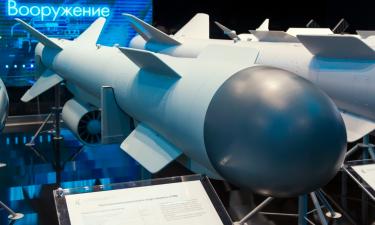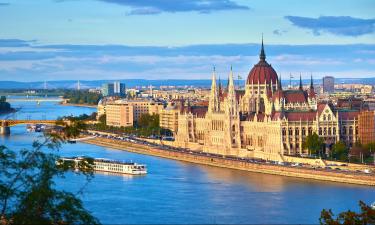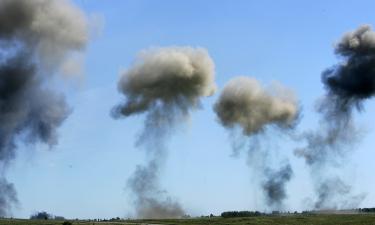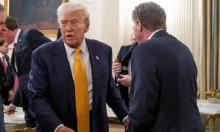Moscow and London negotiate reformatting Ukraine into non-NATO and non-Nazi state
London agreed with Moscow that Ukraine will eventually become similar to Serbia. Such an opinion was voiced during the recent exchange of views on Ukraine's "unwillingness" to join NATO.
London will support Ukraine's reluctance to join NATO
The UK has become noticeably more active during the recent days as far as the Ukrainian crisis is concerned. It appears that London was instructed to deal with the Ukrainian crisis instead of the United States, which was switching its attention to China.
Top British officials have paid visits to Moscow recently — from Prime Minister Boris Johnson to Foreign Secretary Liz Truss and Defence Secretary Ben Wallace. Very unexpectedly, however, Moscow heard a message that it was not expecting from London.
Deputy Defenсe Secretary James Heappey said that London would support Ukraine if Kiev wanted to renounce its claims to NATO membership.
"If Ukraine decides that it is going to offer that it won't become a NATO member, we support that — that's for the Ukrainians to decide," he told Sky.
Heappey's statement came as a comment to the remarks from Ukraine's Ambassador to the UK, Vadym Prystaiko, who said in an interview with BBC 5 Live that Ukraine could consider abandoning its goal of joining NATO.
Soon afterwards, Sergei Nikiforov, an official spokesman for Ukrainian President Zelensky, recalled that Ukraine's desire to join both the North Atlantic Alliance and the European Union was enshrined in the Constitution of Ukraine. However, a spoken word takes its flight, and one may assume that Ukraine and the West conduct behind-the-scenes talks on this subject. There are a few reasons for that indeed.
If no agreement is reached with Moscow, NATO will fall apart
Earlier in The Times, James Heappey warned against using NATO's "expansionist" narrative and extending the collective security of the alliance to non-members as this could be fraught with the disintegration of the alliance.
Indeed, NATO allies have made it clear that they do not want to defend Ukraine militarily. As for the sanctions and arms supplies, these issues have no decisive importance if Vladimir Putin gives the appropriate order.
In addition, there are NATO members who are convinced that one should conduct a dialogue with Moscow, rather than threaten Russia with sanctions. It goes about Germany, Hungary, Austria, Turkey, France. The latter, for example, did not order to evacuate its citizens from Ukraine.
This suggests that NATO does not have a unified strategy to respond to Moscow's tough determination to eliminate the Nazi Bandera regime in Ukraine.
The UK is aware of that. London does not want to stick its neck out. In addition, local experts already sound the alarm about the UK's food security (in the event of war, Britain will be deprived of wheat supplies from Russia and Ukraine) and diesel fuel supplies from Russia.
To save economy from collapse, it is much easier for London to come to an agreement with Russia, while saving its face. This is where Ukraine's refusal from NATO membership may come in handy.
London does not mind Ukraine becoming Serbia
This is one of the red lines that Putin rigidly outlined. As Putin stated, Ukraine's incorporation into NATO would lead to a war with the alliance. "Do you want France to fight Russia?" he said to a French journalist.
What does London have in mind then? James Heappey, commenting on the above-mentioned remarks from Ukraine's Ambassador to the UK, cited Serbia as an example of a country, which the UK has a good relationship with, even though it is not a member of the alliance.
"There are countries like Serbia that are not members of NATO, but with whom we seem to have a good relationship. Similarly, if Ukraine wanted to reserve its position and say that it the future it may want to join NATO, we would support that too, because that's what sovereignty is and that's what we support," James Heappey said in an interview with Sky News.
The example of Serbia is not incidental. Serbia, like Ukraine, also has close ties with Russia. It appears that Moscow and London see Ukraine as another Serbia. In order to accomplish that, Nazi-oriented Ukrainian politicians should leave the political arena. This is the agreement between Russia and the UK. It does explain many aspects of today's policy of pressure from the West on Ukrainian President Zelensky.
Moreover, the evacuation of the Western military from Ukraine is not going to be reversed. The presence of NATO army bases in Ukraine, as well as Ukraine's membership in the alliance is excluded as well. After the peaceful replacement of the regime in Ukraine (the leak in British media about Yevgeny Muraev fits into this scenario as well), these agreements will be formalised in writing, as Russia requires.
Subscribe to Pravda.Ru Telegram channel, Facebook, RSS!




